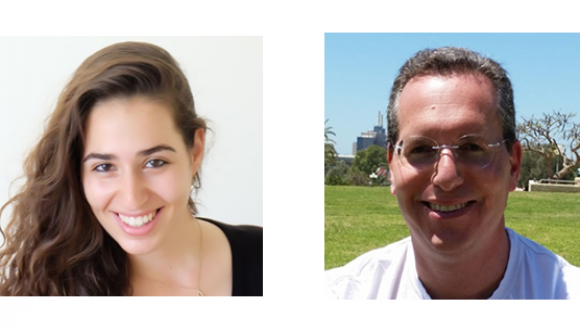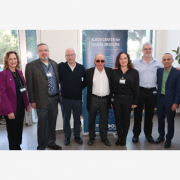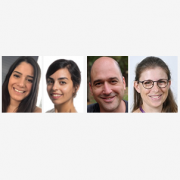January 2023: Elkon and Eshel: Breakthrough in understanding risk factors for blindness caused by eye disease AMD
A new study, published in PLOS Biology, on the genetic aspect of age-related macular degeneration (AMD), was conducted in collaboration between the labs of Prof. Ruth Ashery-Padan and Prof. Rani Elkon, Edmond J. Safra member.
A new study, published in PLOS Biology, on the genetic aspect of age-related macular degeneration (AMD) – the leading cause of blindness among the elderly population, was conducted in collaboration between the labs of Prof. Ruth Ashery-Padan and Prof. Rani Elkon, Edmond J. Safra member (Medicine). The bioinformatics analyses were performed by Mai Eshel, Edmond J. Safra MD-PhD student fellow, and Naama Messika-Gold, former Edmond J. Safra PhD student (Elkon lab, Medicine).
AMD is a complex disease that is affected by both environmental and genetic factors. Its genetic component is polygenic, meaning that the genetic predisposition of each of us to develop this disease is affected by the collective effect of multiple genetic variants. ‘AMD-risk’ genetic variants in the human genome were mapped a few years ago by large-scale genome-wide association studies (GWAS). However, the biological mode of action of most of these variants is completely unknown.
A major challenge in their functional interpretation stems from the fact that the vast majority of these variants are located in regions in the genome that do not encode for proteins (‘the noncoding genome’). In this study, the researchers used a multi-omics approach to delineate the gene expression program that is active in cells that degenerate in AMD. They discovered the mechanism of action of one of the major risk variants for AMD and showed that it compromises the activation of a prominent gene in these cells by key regulators. The results and the genomic approach used in this study set a paradigm for deciphering the function of non-coding risk variants of complex human diseases.
The study had an extensive coverage in the media: JPOST. Scienmag, NEWSWISE, Bioengineer, Genengnews, Psychreg, Sciencenewsnet, Genomeweb, Ophthalmologytimes, news-medical, newsazi, NEWSBREEZER and more.





